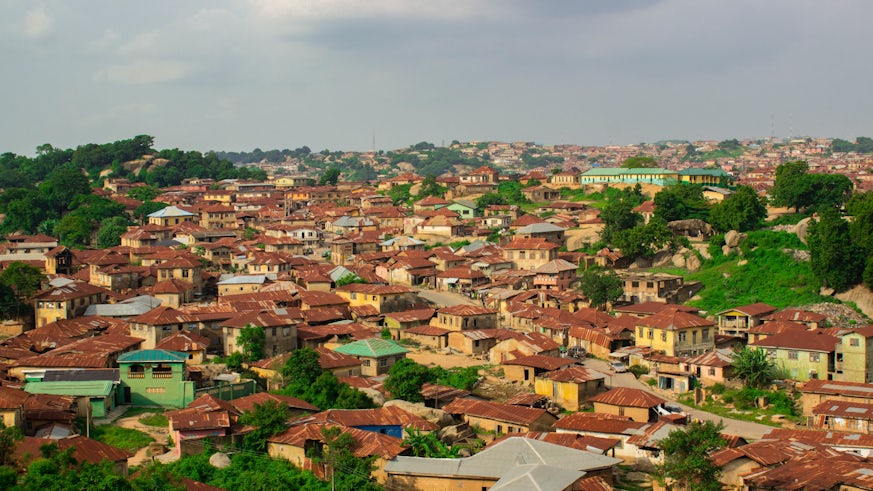International knowledge exchange projects to monitor levels of COVID-19 in wastewater worldwide
17 February 2021

The WEWASH Team are sharing their expertise with local and international partners to develop and apply monitoring systems of COVID-19 levels in wastewater worldwide.
The team are now collaborating with other organisations locally such as the University of Exeter, the University of Liverpool, and the Liverpool School of Tropical Medicine and internationally with Michigan State University, USA, the University of Nigeria, Nsukka, the South African Medical Research Council, the State University of Campinas and Environmental Company of São Paulo State, Brazil.
Dr Shelagh Malham, Prof Davey Jones, Dr Kata Farkas and Prof James McDonald are involved in a UK Research and Innovation through the UK Government’s Global Challenges Research Fund (GCRF) - Newton Fund project on the Co-surveillance of Wastewater and Environmental Water Samples for SARS-CoV-2 and Pathogenic Viruses in South Africa and Nigeria.
This expertise-sharing project will build up wastewater-based epidemiology and environmental surveillance systems to assess the prevalence of COVID-19. Having advanced warning of outbreaks of increases in infection rates for COVID-19 and other viruses in Nigeria and South Africa will inform local decisions in areas where health systems, testing systems and human resources are severely constrained.
Dr Shelagh Malham, leader of the project in Bangor University says: “We will work with our partners so that they can scale up techniques and protocols developed for the surveillance of SARS-CoV-2 and other viruses throughout their regions, enabling communities, public health agencies and governments to work towards risk reduction and management of national and global health risks.”
Dr Vincent Chigor from the University of Nigeria says:“This project will be ground-breaking in Nigeria, and the inclusion of surface waters is very crucial here considering the near absence of municipal waste-water treatment plants and continued discharge of untreated sewage into water bodies. The project offers us a huge opportunity for capacity building and equipment acquisition.”
Dr Renée Street, Specialist Scientist at the South African Medical Research Councils Environment & Health Research Unit adds: “We are very excited about this international collaboration on wastewater-based Early Warning Systems for COVID-19 and other pathogens, and look forward, as part of this project, to strengthening our systems for greater public health impact.”

Meanwhile, WEWASH team members from Cardiff’s Water Research Institute are working with partners in Brazil on a GCRF project funded by the Higher Education Funding Council for Wales. This project will compare monitoring and modelling approaches from SARS-CoV-2 wastewater surveillance programmes in São Paulo State and Wales. As with the work in Nigeria and South Africa, an important component will be assessing how to apply the approach to vulnerable off-grid communities without wastewater treatment.
Dr Maria Inês Sato from the Environmental Company of São Paulo State (CETESB) comments that: “Applying SARS-CoV-2 wastewater surveillance to estimate the COVID-19 infection rate in the population and the evolution of the pandemic is an ongoing challenge, especially considering the technical challenges of working with an enveloped virus and all uncertainties of the virus’s behavior in feces and sewage. The joint effort of the partnerships to work in these challenges is crucial to support decision makers in facing the pandemic.”
Prof Cassiana Montagner from the Brazilian Water Research Centre at the State University of Campinas and Prof Isabelle Durance from the University of Cardiff’s Water Research Institute also reinforce the key role of collaboration in tackling this global challenge, with Prof Durance stating: “These projects are a fantastic opportunity to share interdisciplinary knowledge and expertise with international partners, ensuring that monitoring efforts are applicable to different contexts. Sharing best practice will allow us to develop a resilient approach to tackle this worldwide pandemic.”
In the long term, wastewater surveillance of COVID-19 and other viruses will help assess the burden of viral and other human pathogenic diseases circulating in the general population.
Wastewater surveillance systems for various viruses, such as poliovirus, are already in use in several countries. Yet, the surveillance of SARS-CoV-2 is primarily being used in many high-income countries, including the UK. These international collaborations will improve knowledge exchange on best practice to provide efficient early warning system of increased viral cases in other parts of the World.
To find out more about the WEWASH project, please visit the official website.








